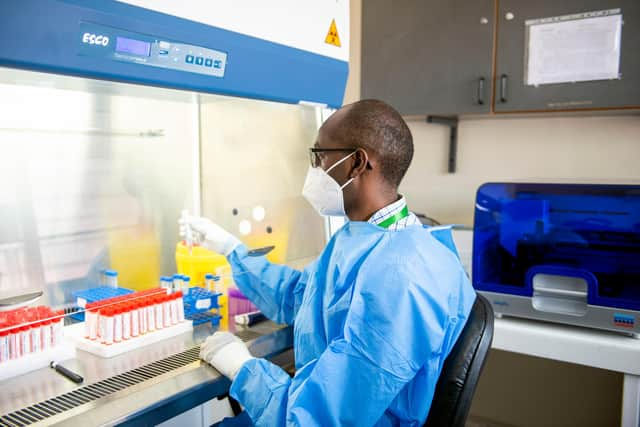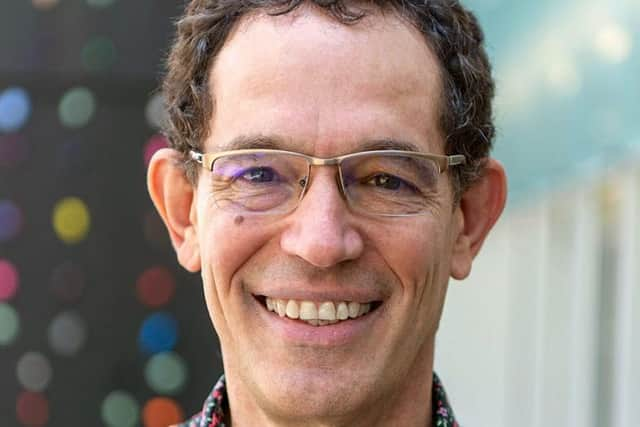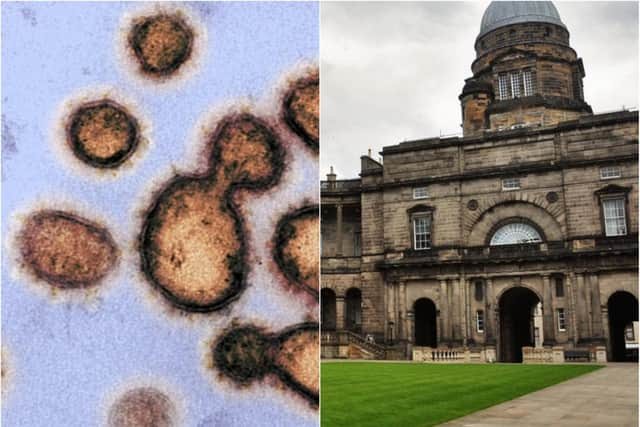Edinburgh University scientist helps discover potentially 'game-changing' new way to spot Covid outbreaks earlier and make testing '20 times cheaper'
and live on Freeview channel 276
A recently created computer algorithm is being used to test multiple samples in one go, which researchers say could be around 20 times cheaper than carrying out individual tests for large populations.
The new approach, detailed in a study published in the journal Nature, could also make it easier to spot coronavirus outbreaks early on.
Advertisement
Hide AdAdvertisement
Hide AdInitial research shows it is highly effective at identifying positive cases when most of the population is negative.


How it works
The team of researchers, including a theoretical physicist from the University of Edinburgh, developed the method – called the hypercube algorithm – and conducted the first field trials in Africa.
Tiny quantities taken from individual swabs were mixed to create combined samples and then tested. The team showed that a single positive case could still be detected even when mixed with 99 negative swab results.
If this initial test highlighted that the mixed sample contained positive cases, then researchers used the algorithm to design a further series of tests. This enabled them to pinpoint individual positive swab results within the combined sample, making it easy to identify people who are infected.


Advertisement
Hide AdAdvertisement
Hide AdIf the initial test results indicated that there were no positive cases in the mixed sample, then no follow-up action was needed.
The new method is best suited to regular screening of a population – rather than testing individual patients – and may help to significantly lower testing costs, the team says.
So far, the method has been trialled in Rwanda, where it is being used to screen air passengers, and in South Africa, where it is being used to test a leading rugby team regularly.
Professor Neil Turok, who recently joined the University of Edinburgh’s School of Physics and Astronomy as the inaugural Higgs Chair of Theoretical Physics, said: “We hope our method will enable regular, cost-effective screening in multiple contexts.


Advertisement
Hide AdAdvertisement
Hide Ad“By doing so, it could be a game changer in helping us to overcome the Covid-19 pandemic.”
The new study also involved researchers from the African Institute for Mathematical Sciences and the University of Rwanda.